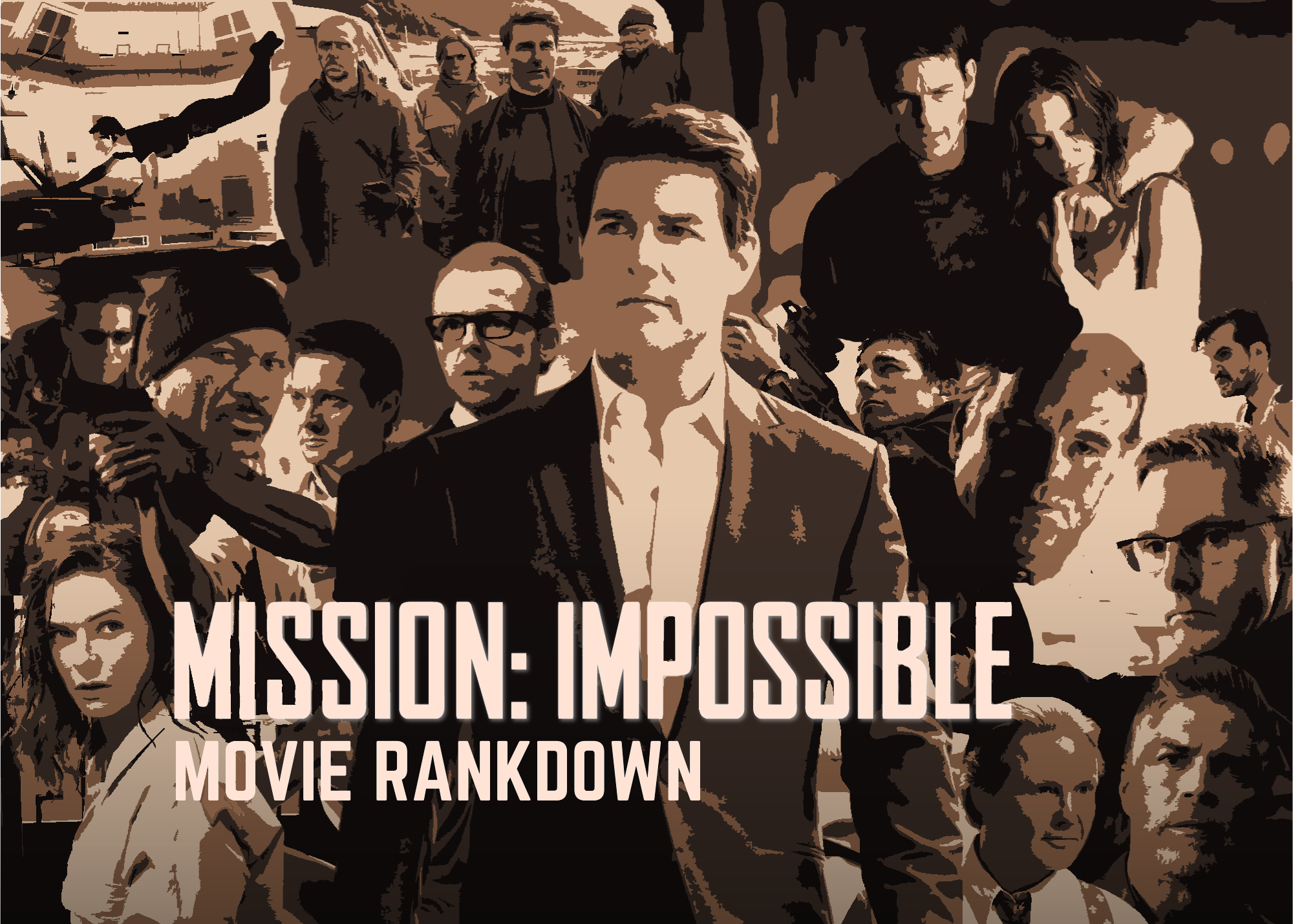Review: "All About Eve" Is A Brutally Biting Hollywood Hit Piece
Joseph L. Mankiewicz's masterpiece is a cutting dissection of show business and a sobering lament on humanity.
Golden AgeIntrospection is necessary for progress. We cannot evolve without looking inside, asking difficult questions, and accepting troubling truths. Change is not a revelatory moment wherein everything we aspire to becomes reality. It is a collection of moments where we seize the chance to better ourselves, recognizing the opportunities that knock on our door and answering them with an open mind and heart.
Of course, open-mindedness is not in our nature, only inquisition. We inquire into things we do not understand and dissect them long enough to reach the most palatable conclusion, especially regarding our morality. No one wants to view themselves negatively. As such, every choice we make has valid reasoning or isn’t as bad as it seems. We project fault onto innocent parties and exploit loyalty to elicit sympathy we do not deserve.
Why else would we rationalize infidelity, gaslight friends to suppress our shortcomings, or even do mundane things like refuse to return carts or park in handicapped spaces? Everything has a purpose because our lives are so meaningful that honesty and self-improvement have proven inconvenient. The opportunity for growth arrives, announces its presence, and gets swiftly dismissed.
It is somewhat foolish to believe films afford such opportunities. Irrespective of genre or intent, they are entertainment that can provide insight, not the other way around. Even the most contemplative drama or subversive comedy is a film first: something we consume to escape, even for a moment.
But simply because something exists in one fashion more than another does not mean its secondary purpose cannot be illuminating. The more forthrightly a film depicts its subjects, the more we can see ourselves within them. The more we see ourselves within them, the more likely we are to find those moments where we see ourselves for who we are and thus walk away with the propensity for change.
All About Eve demands change.
Eve Harrington stands outside a New York theater, hoping to meet her idol, stage legend Margo Channing. Margo’s friend, Karen Richards, discovers Eve and brings her to meet Margo. Eve regales the group (rounded off by Margo’s assistant, Birdie, and Karen’s husband, Lloyd) with her life story, a tale of impoverished Midwestern youth and ultimate tragedy: getting widowed when her husband dies in World War II. Pitying her, Margo befriends her, and Eve takes root as a sycophantic assistant, “studying” her to infiltrate her personal and professional world and supplant her as the theater’s next star.
It is the “quintessential depiction of ruthless ambition in the entertainment industry,” a critique of Hollywood grandstanding that masks the seedy nature of the war for creative supremacy.
It presents a shiny veneer, that of an old-school Hollywood drama with all the fixin’s: a bonafide legend at the center surrounded by an award-winning supporting cast, an Oscar-winning writer-director, and the most reliable, acclaim-whoring tactic of all: being a movie about artists.
Joseph L. Mankiewicz did love his dialogue. Though laced with brilliant zingers (“I distinctly remember, Addison, crossing you off my guess list. What are you doing here?”) and amusing insults (“And you, pose as a playwright. A situation pregnant with possibilities and all you can think of is ‘Everybody go to sleep.’”), All About Eve is too wordy for its own good. Still, it remains clever and biting.
Margo arrives late for a reading with understudy Claudia Casswell and finds theater critic Addison DeWitt waiting outside the auditorium. Aware of Margo’s brewing insecurity and Eve’s plans to usurp her, DeWitt jabs Margo with Eve’s developing superiority while she mocks him for his pretentiousness. It’s a monument to cattiness, perfection of the bitchy verbal ping-pong match. It’s the sort of cat-and-mouse game where the cat-and-mouse are never clear, and the winner isn’t known until the movie clarifies what victory truly means.
Eve upends the group she infects, hatching a devilish game of trickery and emotional manipulation. Margo, whose fading star inspires a protective but self-serving instinct towards a wide-eyed ingenue; Karen, whose gullibility and earnestness will protect her friendships one moment and her image the next; Bill, whose dismissive longing for Hollywood stardom will blind him to her intentions. It’s a brilliantly crafted mind game written with wit and intelligence, but more so than that, an understanding of that necessary clarification: what does victory mean?
After all, Eve is the cat in the great game, but her victory, in the end, is pyrrhic. For all her maneuvering and manipulation, her lies unravel in the face of Addison’s cunning detective work. He knows what no one else knows. He has what no one else has, and thus he has her. She “belongs” to him now. She can go where she wants but will never go anywhere else. "There never was or will be another like her,” but she will waste that singularity in a trap of her own making.
But that’s the grand theme of the movie: we often trap ourselves, whether in situations we created or self-contained dramas from which we can't escape. We struggle to refuse flattery even in the face of suspicion. Margo suspects Eve’s nefarious intent after Birdie clues her into her dissection of Margo’s every waking moment, but only after. We never want to believe a bad thing unless we have no choice. Once we make that choice, our projections spiral us into despair. Sometimes they boil over in a dramatic scene like the one inside the theater, where Margo feigns ignorance of Eve’s reading and gradually crescendos into a rageful outburst of insecurity over the “fire and music” she no longer possesses.
It’s hard to watch the years pass and feel life slip through our fingertips, to feel time stealing from us what it once readily gave: think of the men who need only one hand to count the compliments they’ve received. They must make the first move and develop the relationship. Feelings are taboo; desiring them validated a compromise of their treasured masculinity. A simple compliment can define a crucial part of their lives.
We all reach a point where wrinkles show, memories fade, and our last chance at recognition vanishes. We all need validation just as much as the aging stage star who gazes in the mirror and wonders what place she still has in the world.
Margo is a real woman because she’s a real person. She’s powerful but insecure, ambitious but resigned, terrified but fearless, and perfectly flawed. She’s the woman all cinematic heroines should aspire to be and the human being all of us should aspire to be: imperfect and immeasurable, fully realized and well-rounded, and most of all, truthful.
She is definitely not a manic pixie dream girl, driving towards a sunrise meetup in hushed whispers through the phone, donning a red beanie and blue jeans. Her companions are not lazy, outdated tropes, though written by a man who won an Oscar a year before for a film whose ending is essentially, “I cheated, but whatever.”
These are human beings in circumstances that feel organic because the people inside them feel organic. They are genuine, regardless of ethics. They are us, men and women alike, and in a way that doesn’t draw lines and stake claims on societal land for the sake of one-upping the other gender.
No matter how often we get taught to anticipate Eve’s duplicity and the degree to which her victims will succumb, there is a shock to how low she will stoop and the easily corruptible nature of her targets. But it is always sincere in making that mischievousness progressively more alarming or the consequences so unavoidable. Within every character is a slice of who we are, and the resulting whole speaks volumes about the true strength of our claims and the degree to which we can defend them.
Inside Margo is our fear of getting pushed aside for people within whom we see things we believe lost to ourselves. Inside Eve is the willingness to realize the dreams we cast aside and the rationalizations we concoct to excuse the more questionable measures we take to see them through.
Inside Bill is the person who always sees the best in people but proves just as passionate in his optimism as earnest in realizing the truth. Inside Karen is the person whose good intentions become muddied by neediness, that unflinching loyalty whose reliability gets veiled by the folly of pure-heartedness. We cannot escape the truth of All About Eve, the one that powered it to a record 14 Oscar nominations and six wins, including Best Picture, even as it displays a quick wit we could only hope to possess.
It makes the film not just a sendup of the Hollywood-Broadway rivalry that pits pseudo-intellectualism against itself and the ambitious climbers that seek to ascend the ladder of recognition. It makes it not just a comedic storm of commentary, earnest in examining life as much as the self-destructive ways we view it. It also makes it genuinely human. It makes us look inward and question the fears that control us, the ambitions that drive us, and the results that dictate our sentiments.
Eve can always put her award where her heart ought to be; Margo can take her final bow, knowing that her protégé was a dishonest leech; Addison can “own” Eve in all her newfound glory. But the ends do not always justify the means, and consequences we never expected can come to decide our lives if we do not look inward and commit to change. If Margo had accepted her desperation sooner, if Eve had measured herself more accurately, if everyone had set aside what they wanted to be true to embrace reality, the story would have ended differently. Our lives are very much the same, and All About Eve knows it and thus more than how to deliver a great putdown. It knows how to make us change.
.png)
97
Director - Joseph L. Mankiewicz
Studio - 20th Century Fox
Runtime - 138 minutes
Release Date - October 13, 1950
Cast:
Bette Davis - Margo Channing
Anne Baxter - Eve Harrington/Gertrude Slescynski
George Sanders - Addison DeWitt
Celeste Holm - Karen Richards
Gary Merrill - Bill Sampson
Hugh Marlowe - Lloyd Richards
Thelma Ritter - Birdie Coonan
Gregory Ratoff - Max Fabian
Marilyn Monroe - Claudia Casswell
Editor - Barbra McLean
Screenplay - Joseph L. Mankiewicz
Cinematography - Milton R. Krasner
Score - Alfred Newman

%20(13%20x%206%20in)%20(13%20x%204%20in).png)





































.png)






.png)